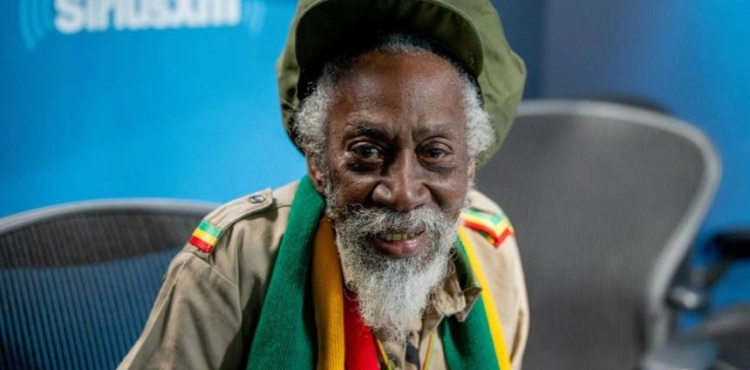Jamaican singer and percussionist Banny Wheeler, a legend of reggae music, died Tuesday at the age of 73 at Andrews Memorial Hospital in Kingston (Jamaica), and his departure marked the end of an era for this movement Musical.
And Jamaican Culture Minister Olivia Grange announced the news. The cause of death has not been determined. Wheeler, who along with Bob Marley and Peter Touche founded the band "The Wheelers", transforming reggae music into a global phenomenon.
Wheeler, whose real name is Neville Livingston, suffered a first stroke in 2018 and then a second in July 2020, and was still the only surviving member of the historic trio.
Bunny Wheeler was born in 1947 in Nine Mile (North Jamaica), where Bob Marley met a child, and they developed a friendship. Later, his father became the life partner of Bob Marley´s mother.
Wheeler and Marley moved to Trunch Town, an area in Kingston, where they were influenced by their meeting with Joe Higgs, considered by many to be a pioneer of reggae music, and he encouraged them to form the first trio with Peter Touche.
In a 2013 interview, Banny Wheeler recounted that Higgs "took time at the expense of his career" to teach the three teens about musical techniques, since none of them had studied music before that.
The band changed its name several times, before releasing its first CD "The Willing Wheelers" in 1965, which combined American music, especially Rhythm & Blues, with Jamaican culture.
With his charismatic figure, beard and hat, Bani Wheeler who was a follower of the Rastafarian religious movement played a crucial role in the development of this musical genre.
"We have lost an icon," said Jamaican reggae president ETF Band, commenting on Wheeler´s death. "It is a pity that the young people who are part of the Jamaican music scene do not realize what Banny Wheeler has achieved," he added.
In a 2013 interview, the musician explained that he voluntarily retreated from the forefront when forming "The Wheelers".
He added, "All members of the group have leadership qualities, but we needed a voice that would make anyone know that she is ´The Wheelers´ when he hears it, and having Bob in the front provided us with that voice."
"The Wheelers" has been a success since its inception thanks to songs like "One Love". The song was re-recorded on the Bob Marley record "Exodus" in 1977 and achieved international success.
The band followed their first CD with more albums before starting their collaboration with producer Chris Blackwell.
The founder of the "Island Records" brand contributed greatly to changing the sound of the group, adding an electric voice to it that is well received by a larger global audience, he said.
Bani Wheeler participated in "Catch-e-Fire" and "Burnen", which turned reggae into a major musical movement. But he left the group after that, and so did Peter Touche, after he had tired of the role of contributing to Bob Marley and felt that he was his captive.
Wheeler began his career as a solo with the "Blackhart Man" cylinder, which is now considered a classic of reggae. During the 1990s, he won three Grammy Awards dedicated to American music, two of which were for Best Reggae Drum.
Before he had his first stroke, Wheeler would perform regularly, and his voice was stronger than ever.
As much as his music made an impression, his stances had a great impact on the emancipation of Jamaica, which gained independence in 1962.
"Benny has had a great influence on me (...) I would like young people to hear his message," said Devon Cole, 54, a Kingston salesperson.
Neil Parchment of St. Catherine in Jamaica commented, "In my opinion, Benny Wheeler, as Bob Marley, made us present thanks to the music he created."
Jamaican journalist Karel Walker noted that "Bunny Wheeler was a more complete musician than Bob Marley. He played more than one instrument and wrote some great songs."
"Now all Jamaican musicians are dead, and it is the turn of the younger generation to live up to this legacy and make progress," he added.












